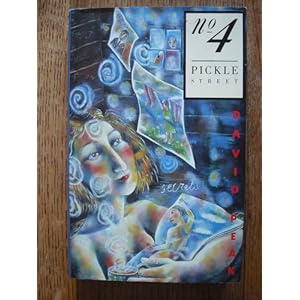 |
| Maize |
John paced. Four strides each way. You’ll wear a hole in
the carpet is mother had said. But in here there was no carpet.
59, 60, 61, 65. He tried to remember
why he'd ended up in this place. The
heavy curved marble of the lamp by his mother's bed, the looped white tassels
of the shade. That was all his memory could give. He looked up. Was it night or day? Hard to
tell with no natural light to guide him. He had to wait. The time was
punctuated three times a day by a metal grille opening in the steel door of the
cell. A large eyeball would stare at him then a steel flap would open out of
the door like a shelf and a plate of food would be pushed towards him by a
hand.
The hand was fleshy with liver spots and silvery hairs. It
was a married hand with a thick gold ring claiming the finger. John quickly
grasped the plate with his bony, ring-less fingers.
For a split second he was close to another person, as the hands held the
same plate of food. There was a giver
and a receiver.
'Hello?' He tried.
But the grille had already
answered, shutting out any light, any clue of what the man’s hand could be
connected to the other side of the grille. What he wore, what time of day it
was, what was happening outside.
97, 98, 99, 46. He’d played that game so often as a kid.
Counting up to one hundred to pass the time. Where was he ? Ah yes, the 1960’s
doctors, and there was Ken behind the pharmacy counter measuring out tablets in small white boxes to
add to those stacked high on shelves behind him. The smell of disinfectant and
floor polish. He could never wait to get out of the place. He stared at Ken’s white medical tunic with a high collar, like a Star Trek uniform. It
had short sleeves so Ken’s pale arms were on show. Ken was not a proper man
like his Dad who wore a shirt, tie and jacket for work, or the man in the hardware shop with his long
teeth and saggy work overalls. Ken was exotic. He wrote their names down then waved
John and his mother through to the waiting room.
Women were seated in rows. They
looked them up and down, nodded hello to
Mum, then continued watching the big clock with the black hands. Boxy handbags
were clutched on their laps and nylon head scarves firmly knotted.
Mum wore her
beige mac. She gave him a Janet and John book from a table in the corner. He’d
read it at school, which wasn't hard because there was only one box of books
for all forty kids. He wanted more
stories but there was never enough, and no books at home.
The chairs were too big, the plastic bit the
flesh behind his knees. Plastic seemed
an odd thing to make a chair out of. Wood was better, warmer. These new
plastics had hard edges and they bent and cut into you if you lent backwards,
and the thin metal legs scraped the floor if you jiggled to get
comfortable.
'Don’t
kibble,' hissed his mum. He carried on, leaning even further back. 'Stop it
John stop it,' and she smacked his bare legs above his grey socks and below his
shorts. He drummed his feet on the black and white tiled lino and counted,
counted. 62, 63, 64, 65 Any pattern would do. The cracks in the ceiling, the
cobwebs, the amount of people in the room, the chairs.
That time in the car, trying to
stop that green feeling in his stomach as they cornered their fat old Maxi, all
four kids shoved in the back, sliding into each other. He pushed the chrome tulip-like lock up and down to hear the clunk as
it locked the door. Telegraph poles were
good to count, they were regular, rose
above the hedges, their lines swayed in the wind. Sometimes rooks would be sitting on them and this would be a sub-set. 94, 93, 92. He liked starlings more than
rooks, they pecked over the lawns of his grandmother’s house,
their emerald green feathers dashed with spots. If he was at Gran's at teatime
he watched the flock swoop and swarm and regroup in the skies. That was too hard to count. He began again
with the telegraph poles, counting to stop the porridge and Ribena churning in
his guts. 70, 71 72, 73.
How had he got here? He turned
again in his cell and tried to remember what his mother had said. 89, 96,
92. Spots on the floor. Mouse droppings
? Scrappets of food he’d rolled into pellets.
Next to the marble lamp, her teeth
were in the glass, the U shaped dentures swimming in a fizz. She clasped his
wrist, her hand cold. Leathery where the skin had shrunk. She smelt of face
powder and daffodils. He could see her beige mac with the cool horn buttons.
Her voice was clear in his head as she bought her hand down, sharp on his legs,
‘Stop it John, stop it.'
But he hadn't. Stopped it.
45, 78, 94............


























